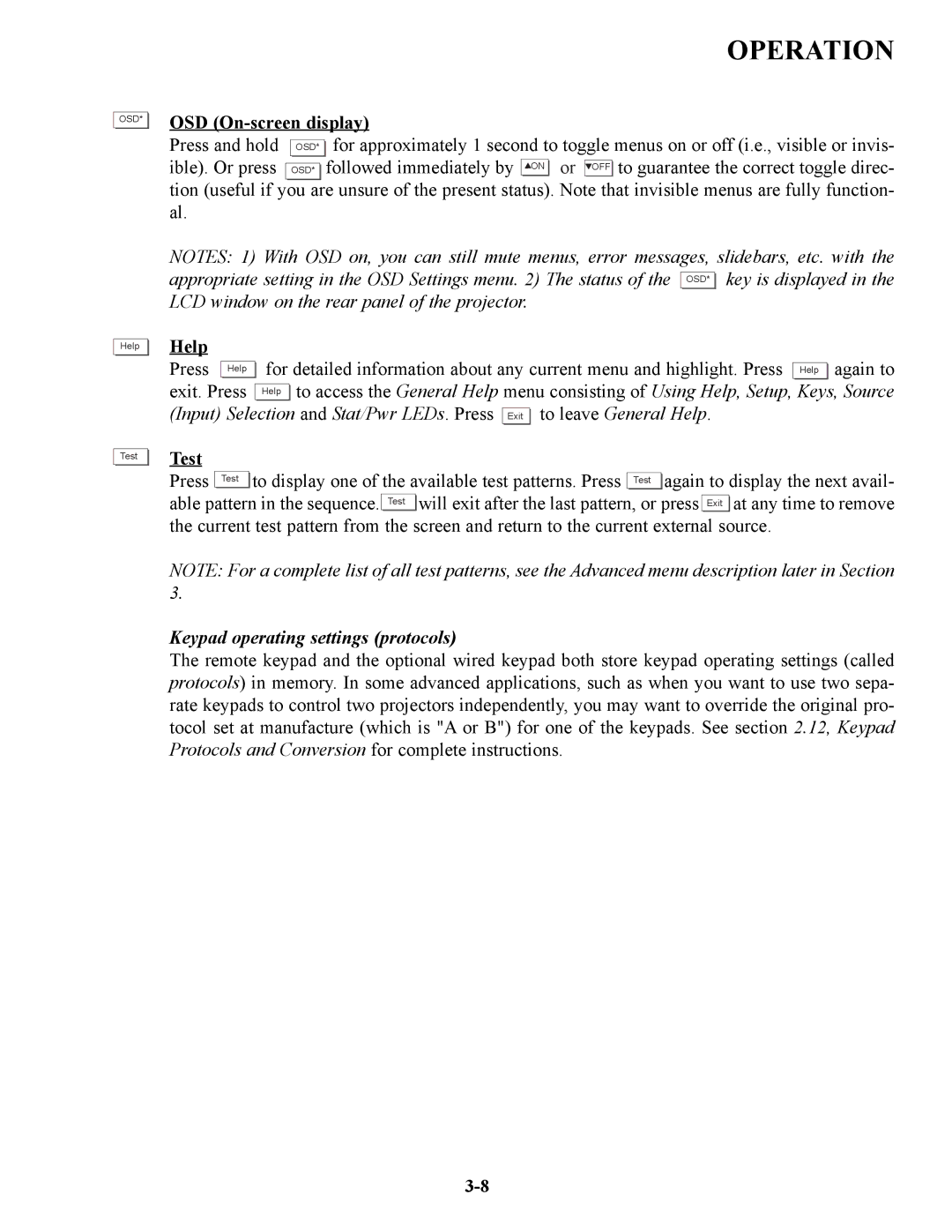
OPERATION
OSD* |
OSD (On-screen display)
Press and hold |
|
| for approximately 1 second to toggle menus on or off (i.e., visible or invis- | |||||
OSD* | ||||||||
ible). Or press |
|
|
| followed immediately by |
| or |
| to guarantee the correct toggle direc- |
| OSD* | ON | OFF | |||||
tion (useful if you are unsure of the present status). Note that invisible menus are fully function- al.
NOTES: 1) With OSD on, you can still mute menus, error messages, slidebars, etc. with the appropriate setting in the OSD Settings menu. 2) The status of the OSD* ![]()
![]() key is displayed in the LCD window on the rear panel of the projector.
key is displayed in the LCD window on the rear panel of the projector.
Help |
Help |
|
|
|
|
| |
Press |
|
| for detailed information about any current menu and highlight. Press |
| again to | |
Help |
| Help | ||||
exit. Press |
|
| to access the General Help menu consisting of Using Help, Setup, | Keys, | Source | |
| Help | |||||
(Input) Selection and Stat/Pwr LEDs. Press Exit ![]()
![]() to leave General Help.
to leave General Help.
Test |
Test
Press Test ![]()
![]() to display one of the available test patterns. Press Test
to display one of the available test patterns. Press Test ![]()
![]() again to display the next avail- able pattern in the sequence. Test
again to display the next avail- able pattern in the sequence. Test ![]()
![]() will exit after the last pattern, or press Exit
will exit after the last pattern, or press Exit ![]()
![]() at any time to remove the current test pattern from the screen and return to the current external source.
at any time to remove the current test pattern from the screen and return to the current external source.
NOTE: For a complete list of all test patterns, see the Advanced menu description later in Section 3.
Keypad operating settings (protocols)
The remote keypad and the optional wired keypad both store keypad operating settings (called protocols) in memory. In some advanced applications, such as when you want to use two sepa- rate keypads to control two projectors independently, you may want to override the original pro- tocol set at manufacture (which is "A or B") for one of the keypads. See section 2.12, Keypad Protocols and Conversion for complete instructions.
